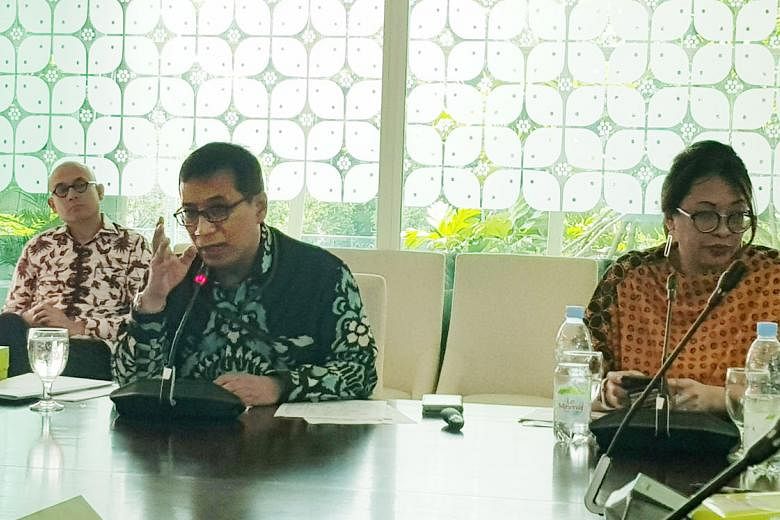Indonesia seeks to make peacekeeping operations the central issue of its presidency of the United Nations Security Council (UNSC) this month, with which it hopes to boost its posture on the world stage as an emerging middle power.
The Muslim-majority nation also aims to raise for discussion the development of illegal Israeli settlements in Palestine, as part of its efforts to mediate in the Middle East conflict.
The presidency is part of Indonesia's two-year membership in the UNSC, starting from Jan 1 this year.
The Foreign Ministry's director-general for multilateral cooperation, Mr Febrian Alphyanto Ruddyard, said Indonesia hopes to highlight the importance of developing the capabilities of peacekeepers, adding that this could be attained by increased cooperation among UN member states.
He noted that most countries sending troops to UN peacekeeping missions are developing nations with differing capacities to train their personnel.
"This is what we want to raise so that the expertise of peacekeepers from developing nations can be improved," Mr Febrian told a press briefing yesterday.
With 3,080 personnel deployed, of which 106 are women, Indonesia is the eighth largest contributor to UN peacekeeping missions out of 124 countries, a widely acknowledged credential of its role in maintaining world peace and security.
Indonesian Foreign Minister Retno Marsudi is scheduled to lead an open debate on how to improve the safety and security of peacekeepers next Tuesday at the UN.
Another issue it will raise is the protection of civilians in armed conflicts, which has been deliberated within the council for two decades and will be elaborated on during another open debate on May 23.
Also high on the agenda is the discussion on the Israeli-Palestinian conflict. In particular, Israel's establishment of settlements in Palestinian territory occupied since 1967, which has no legal validity and is against UNSC Resolution 2334 issued in 2016.
Mr Febrian said that although the discussion, to be conducted under an informal arrangement called the Arria Formula, will not generate a concrete outcome, it is expected to provide a balanced understanding of the matter, which Indonesia considers a violation of human rights.
"It may not have a direct impact on solving the issue... But participants will produce statements, and we can map out commitments and support that we can gather from various forums outside the security council. This way, we know who can be our counterparts in fighting for the Palestine issue," he said.
Indonesia has also been involved in championing causes in conflict-torn places such as Afghanistan, Myanmar and Palestine.
Local philanthropists have committed US$700,000 (S$954,000) to build water facilities and procure medicines, while the government has raised its financial contribution to help more than five million Palestinians through the UN Relief and Works Agency for Palestine Refugees.
Indonesian volunteers have also built the largest hospital in Gaza, fully funded by donations of 126 billion rupiah (S$12 million).
These moves are in line with Indonesia's aspiration to become a middle power on the global stage and in the Indo-Pacific region, amid the strategic rivalry and trade war between the US and China.

